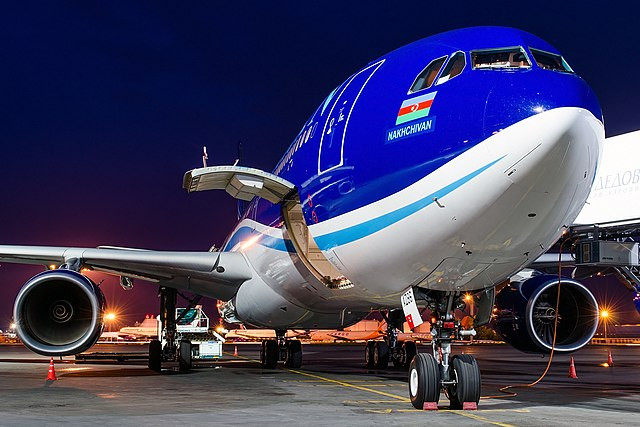Azerbaijan Airlines flight J2-8243, en route from Baku to Grozny, Chechnya, crashed on December 25 near Aktau, Kazakhstan, leaving 38 people dead and 29 injured. As investigations proceed, questions are mounting over the potential role of Russian air defenses in the disaster, a claim that Moscow has denied.
Initial statements from Azerbaijan Airlines described the crash as being caused by "physical and technical external interference." A U.S. official, speaking to CNN, suggested early indications point to the involvement of a Russian anti-aircraft system. Reuters, citing Azerbaijani sources, reported similar findings, adding weight to the suspicion of Russian culpability.
Video evidence from the crash site reveals damage to the plane's fuselage that aviation experts have compared to shrapnel from anti-aircraft missiles. Justin Crump, CEO of risk advisory firm Sibylline, told BBC Radio 4 that the possibility of a Russian missile strike "fits all the available facts."
Russia has offered a different narrative. Dmitry Yadrov, head of Russia's Federal Air Transport Agency, said Ukrainian drones were conducting attacks in the vicinity of Grozny at the time of the crash, necessitating an airspace shutdown. Yadrov stated that the plane had made two unsuccessful landing attempts in Grozny before diverting to Aktau due to poor visibility and fog.
Ukraine's foreign minister Andrii Sybiha accused Russia of misinformation, claiming that Moscow forced the damaged plane to cross the Caspian Sea in an effort to obscure evidence. "Photos and videos from the cabin and after the crash are a smoking gun," Sybiha said, calling for an impartial international investigation.
The incident has led to widespread speculation and criticism. Rasim Musabekov, an Azerbaijani lawmaker, called on Russia to issue a formal apology, alleging the plane was fired upon over Grozny. Kremlin spokesman Dmitry Peskov declined to comment, emphasizing that the investigation is ongoing.
As a precautionary measure, Azerbaijan Airlines has suspended flights to seven Russian cities, citing safety concerns. Flights to Moscow and St. Petersburg, however, remain operational. Kazakhstan's Qazaq Air and Israeli airline El Al have also adjusted flight schedules involving Russian destinations, citing safety risks.
The crash has reignited international scrutiny over the safety of air travel in conflict zones. Aviation experts have drawn parallels to the 2014 downing of Malaysia Airlines flight MH17, which was hit by a missile over eastern Ukraine. Similarities between the damage on the wreckage of flight J2-8243 and that of MH17 have fueled further speculation.
Flight tracking service FlightRadar24 reported strong GPS jamming in the region during the incident, raising concerns about the navigational challenges faced by the aircraft. Russia has employed sophisticated electronic countermeasures to combat Ukrainian drones, which may have inadvertently affected civilian aviation.
As the official investigation unfolds, the stakes are high. The findings could have significant ramifications for Russia's international standing and the broader aviation industry. For now, families of the victims are left grieving, with Azerbaijan Airlines announcing compensation of $23,500 for each deceased passenger and $11,800 for the injured.




